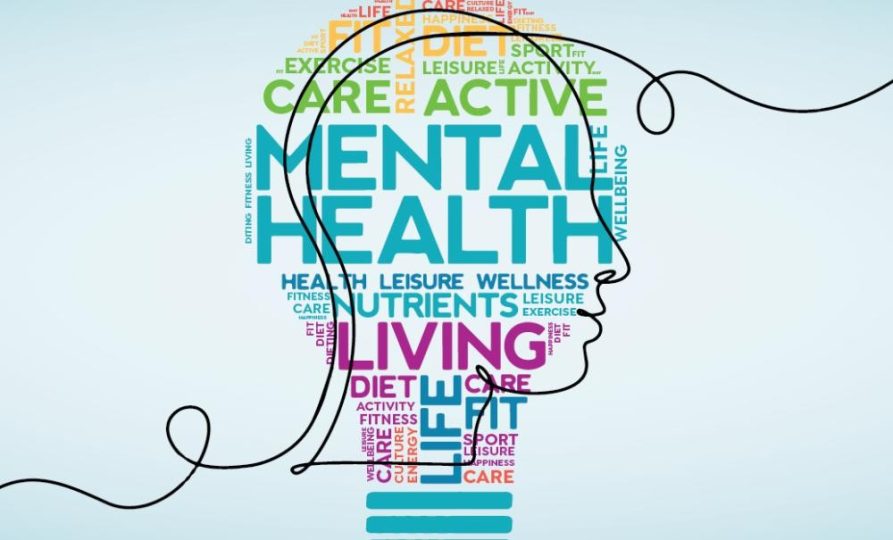In recent years, there has been a significant shift toward recognizing the importance of Mental Health Strategies 2025 in our daily lives. The growing awareness of mental health issues and the ongoing conversation around breaking the stigma have brought these concerns to the forefront. As we move into 2025, it’s clear that mental health is not just an individual concern but a societal one. It impacts our work, relationships, and overall quality of life.
In this article, we’ll explore the significance of Mental Health , the strategies we can adopt to improve well-being, and how to prioritize mental health in 2025 and beyond.
1. Understanding Mental Health and Its Impact
Mental Health Strategies 2025 is often misunderstood and oversimplified. It is not just the absence of mental illness but a state of emotional, psychological, and social well-being. Mental health affects how we think, feel, and act. It also influences how we handle stress, relate to others, and make decisions.
Mental health challenges are more common than we may think. One in four people worldwide will experience a mental health issue at some point in their lives, ranging from anxiety and depression to more complex conditions like bipolar disorder and schizophrenia. Yet, mental health still often goes unaddressed, leading to a cycle of silent suffering.
The impact of mental health issues can be far-reaching. They affect physical health, work performance, relationships, and overall life satisfaction. In workplaces, untreated mental health issues can lead to increased absenteeism, lower productivity, and higher employee turnover. In social circles, lack of mental health support can lead to isolation and strained relationships.
Best Practices:
-
Educate yourself and others about the signs of mental health issues.
-
Recognize that mental health is just as important as physical health.
-
Remove the stigma around seeking help for mental health concerns.
2. Stress Management as a Key Component of Mental Well-Being
Stress is an unavoidable part of life, but it’s how we handle stress that makes all the difference. Chronic stress can negatively impact our mental and physical health, leading to conditions such as anxiety, depression, and cardiovascular diseases.
In 2025, it is essential to adopt effective stress management techniques to improve mental well-being. Practices such as mindfulness, yoga, and breathing exercises can help calm the mind, reduce tension, and promote relaxation. Additionally, time management strategies and setting healthy boundaries can help reduce unnecessary stressors.
Best Practices:
-
Practice mindfulness or meditation to help center yourself during stressful times.
-
Make time for physical activity like walking or yoga to release pent-up stress.
-
Establish healthy work-life boundaries to prevent burnout.
To learn more about stress management, explore The American Psychological Association’s Stress Management Resources.
3. The Role of Sleep in Mental Health
Sleep plays a critical role in mental health. A lack of sleep can worsen mental health conditions like anxiety and depression. It can also affect cognitive function, decision-making, and emotional regulation.
In 2025, prioritizing sleep will be more important than ever. Sleep deprivation is now recognized as a public health issue, with significant consequences for both mental and physical well-being. Establishing a healthy sleep routine, minimizing screen time before bed, and creating a relaxing bedtime environment are essential steps in improving sleep quality.
Best Practices:
-
Aim for 7-9 hours of sleep each night.
-
Develop a consistent sleep schedule by going to bed and waking up at the same time every day.
-
Avoid caffeine or alcohol before bedtime, as they can disrupt sleep.
Learn more about sleep and mental health from the National Sleep Foundation.
4. Building Strong Support Systems
Having a solid support system can significantly improve mental health. People with strong social connections are less likely to experience mental health challenges and are more likely to recover when they do. Whether through family, friends, colleagues, or support groups, human connection is essential for well-being.
In 2025, the importance of virtual support systems and online communities will continue to grow. Many people are turning to online platforms to seek help and connect with others who are going through similar experiences. Virtual therapy and peer support groups offer accessible, affordable options for those who may not have access to in-person services.
Best Practices:
-
Foster meaningful relationships with friends and family.
-
Seek out professional help, such as therapy, if needed.
-
Engage in online communities that promote mental health awareness and support.
If you’re looking for online support groups, check out Mental Health America’s Resources.
5. Exercise and Mental Health as the Power of Physical Activity
Exercise is one of the most effective ways to improve mental health. It releases endorphins, which help reduce stress, anxiety, and depression. Regular physical activity can also improve sleep, boost self-esteem, and increase overall energy levels.
In 2025, integrating exercise into your daily routine will be essential for mental well-being. You don’t need to run marathons—simple activities like walking, cycling, or stretching can make a huge difference. The key is consistency and finding activities that you enjoy.
Best Practices:
-
Aim for at least 30 minutes of physical activity most days of the week.
-
Choose exercises you enjoy, such as dancing, hiking, or swimming.
-
Incorporate physical activity into your routine, such as walking instead of driving or taking the stairs instead of the elevator.
For more information about exercise and mental health, check out The Mayo Clinic’s Guide on Exercise and Mental Health.
6. Seeking Professional Help When Needed
Despite all of the strategies mentioned, sometimes it is necessary to seek professional help. A licensed therapist, counselor, or psychiatrist can offer invaluable support and resources for those struggling with mental health challenges. Therapy provides a safe space to explore feelings, develop coping strategies, and understand the underlying causes of mental health issues.
In 2025, the stigma surrounding therapy and counseling is expected to continue to diminish, making it easier for people to seek help when they need it. There are various types of therapy available, including cognitive-behavioral therapy (CBT), dialectical behavior therapy (DBT), and more, each tailored to different needs.
Best Practices:
-
Don’t be afraid to reach out to a mental health professional if you feel overwhelmed.
-
Understand that therapy is a process that takes time, but it can be highly effective.
-
Explore different types of therapy to find what works best for you.
If you need help finding a therapist, visit Psychology Today’s Therapist Directory.
- Conclusion
In 2025, prioritizing mental health will be more important than ever. By adopting strategies like stress management, improving sleep, building support systems, exercising regularly, and seeking professional help when needed, individuals can enhance their mental well-being and lead healthier, more fulfilling lives. Mental Health Strategies 2025 will be key in helping people overcome challenges and improve their overall quality of life.
As we move forward, it is essential to continue breaking the stigma around mental health and ensure that everyone has access to the resources and support they need. Mental Health Strategies 2025 are crucial to creating a world where mental health is treated with the same importance as physical health. Mental health is just as vital as physical health, and it deserves the attention and care necessary to thrive in today’s fast-paced world. Mental Health Strategies 2025 will ensure that individuals have the tools they need to live a balanced and fulfilling life.
















